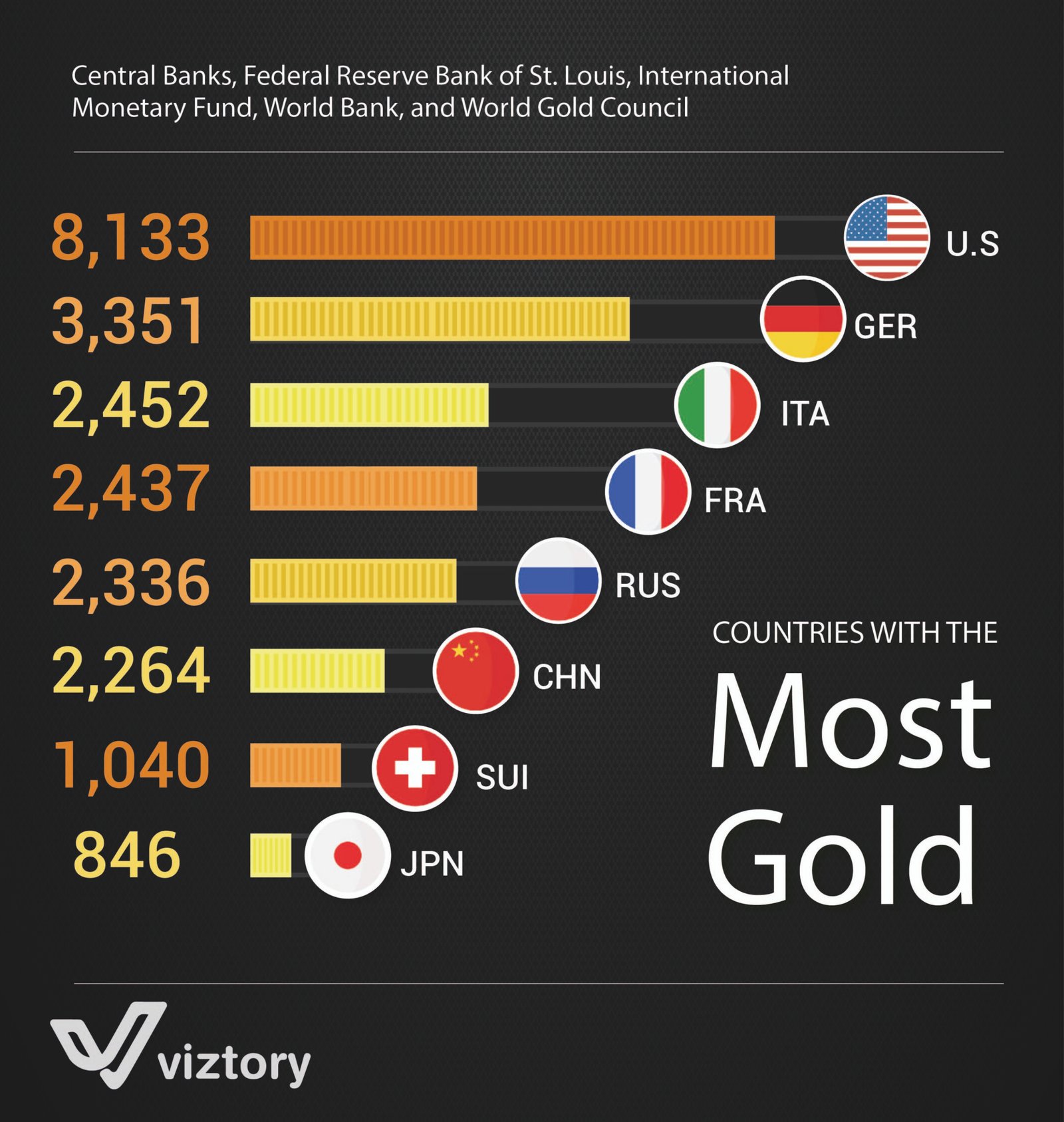The Role of Gold Reserves in the Global Economy: An Analysis of 2024 Statistics
-
Aug, Sat, 2024
The Role of Gold Reserves in the Global Economy: An Analysis of 2024 Statistics
Gold has always held a unique position in the global economy, serving as a reliable store of value and a hedge against economic instability. The latest statistics for 2024, sourced from Central Banks, the Federal Reserve Bank of St. Louis, the International Monetary Fund, the World Bank, and the World Gold Council, provide a clear picture of which countries hold the most gold reserves. This data not only reflects the economic strategies of these nations but also underscores the importance of gold in the broader economic landscape.
Countries with the Most Gold Reserves in 2024
- United States: 8,133 tonnes
- Germany: 3,351 tonnes
- Italy: 2,452 tonnes
- France: 2,437 tonnes
- Russia: 2,336 tonnes
- China: 2,264 tonnes
- Switzerland: 1,040 tonnes
- Japan: 846 tonnes
The Economic Significance of Gold Reserves
Stability and Security
Gold reserves are a fundamental component of a country’s economic security. They provide a safety net in times of economic turbulence, serving as a buffer against inflation, currency devaluation, and other financial crises. The substantial gold reserves of the United States, Germany, and Italy, for example, reflect their strategic focus on maintaining economic stability.
Currency Backing and Confidence
Historically, gold has been used to back currencies, providing a tangible asset that instills confidence in the monetary system. Although the gold standard is no longer in use, substantial gold reserves continue to bolster confidence in a nation’s currency. This is particularly evident in the case of the United States, whose significant gold holdings underpin the strength and reliability of the US dollar.
International Trade and Balance of Payments
Gold reserves play a crucial role in international trade. Countries with large gold reserves can leverage them to settle international debts or trade imbalances. This function is vital for nations like China and Russia, which engage in extensive global trade and need to ensure the stability of their balance of payments.
Economic Influence and Geopolitical Power
Possessing large gold reserves also translates to increased economic influence and geopolitical power. Countries with substantial gold holdings, such as the United States and Germany, wield significant sway in international financial institutions like the IMF and World Bank. Their economic policies and decisions can influence global markets, reinforcing their strategic positions on the world stage.
Conclusion
The 2024 gold reserve statistics highlight the enduring importance of gold in the global economy. Countries with significant gold holdings are better positioned to navigate economic uncertainties, maintain currency stability, and exert influence in international trade and geopolitical arenas. As economic dynamics continue to evolve, the strategic management of gold reserves will remain a critical aspect of national and global economic policy.
Gold, with its historical legacy and modern economic relevance, continues to be a cornerstone of financial security and economic strategy. The data from 2024 serves as a testament to its indispensable role in shaping the economic destinies of nations.

